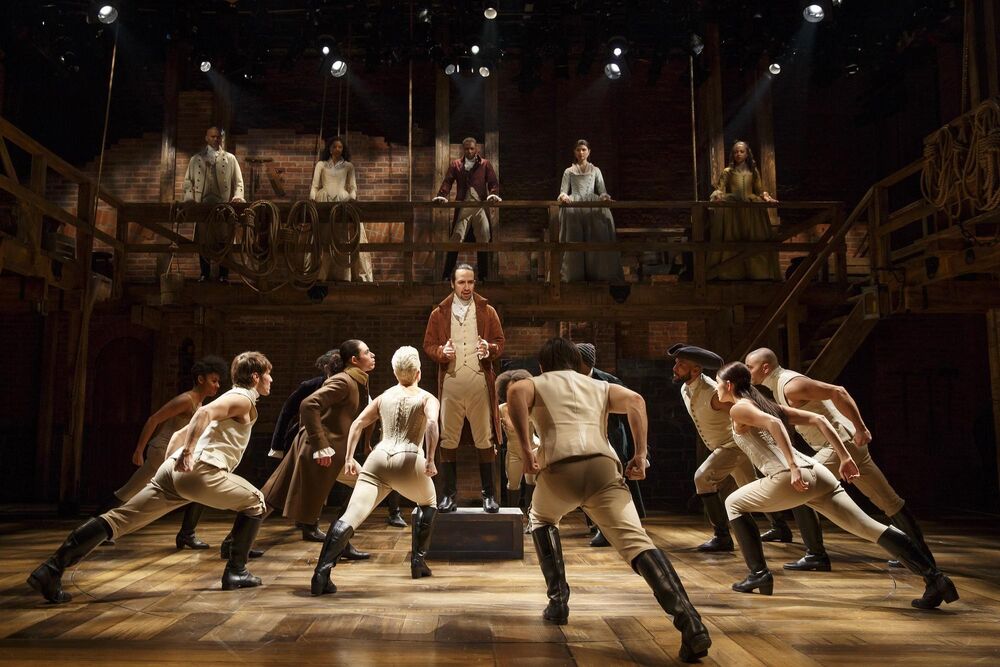Finding Myself in Hamilton

You don’t have to know me for very long before you realize that I don’t back down from a fight. No, not physical fights, but cognitive challenges. I will sign up for more activities than I can manage, then carefully balance my commitments so that I can, if the stars all align, perform well in all arenas. This is not healthy, and I know that. But, I take a certain amount of pride in being able to churn through tremendous amounts of work in limited time. Of course, the more I overcommit myself, the more testy I get. I wouldn’t say that I get mean or grouchy, I just get a little sharp around the edges.
In watching Hamilton, I see a little bit of myself in him, and a little of him in me. Instead of writing the planned 25 essays with John Jay and James Madison, Hamilton wrote 51 essays by himself in 6 months. It is this kind of drive to impress people that has driven me to some of my brashest decisions. For instance, my choice to stage manage Young Frankenstein, the high school musical this year. I knew that it was going to be difficult, but I had no idea how many hours would be required to make the show work. I won’t go into detail, but here’s a snapshot: me running music with my right hand, turning pages in my script with my left hand, cueing the stage crew through a headset and cueing the light board operator and the sound effects with head bobs. It was a stretch of my multitasking abilities, to say the least.
Of course, Hamilton is more than just a stress-ball of overcommitment, he is an immigrant, which I am not. After learning about Hamilton’s life, I have a newfound profound respect for immigrants who choose to come to America to make their mark, not just to survive. I would never have expected such genius to come from such a meager background. I suppose that prejudice is something I need to change in myself: I need to have a more open mind regarding where intelligence, wit, and drive can come from.
Another difference between me and Hamilton is that I am capable of holding my tongue; Hamilton, in a word, is not. The wonderful side-effect of Hamilton’s loose tongue is that there is a clear window into his consciousness. You will always know what Hamilton is thinking, regardless of whether or not you want to know.
Analyzing the character of Alexander Hamilton has enabled me to understand myself in a more nuanced way, recognizing the advantages and disadvantages of my personality traits. Knowing this, I will not only be able to realize when I am not utilizing my gifts, but also be able to see when my weaknesses are hindering my ability to work effectively and, more importantly, maintain relationships.
These kinds of personal realizations are the most important and engaging parts of literature, and are the greater purpose of literature as a whole. The goal of all literature is to show the reader another perspective and/or have the reader reflect on themself in order to inspire some sort of change; in attitude, action, or thought.